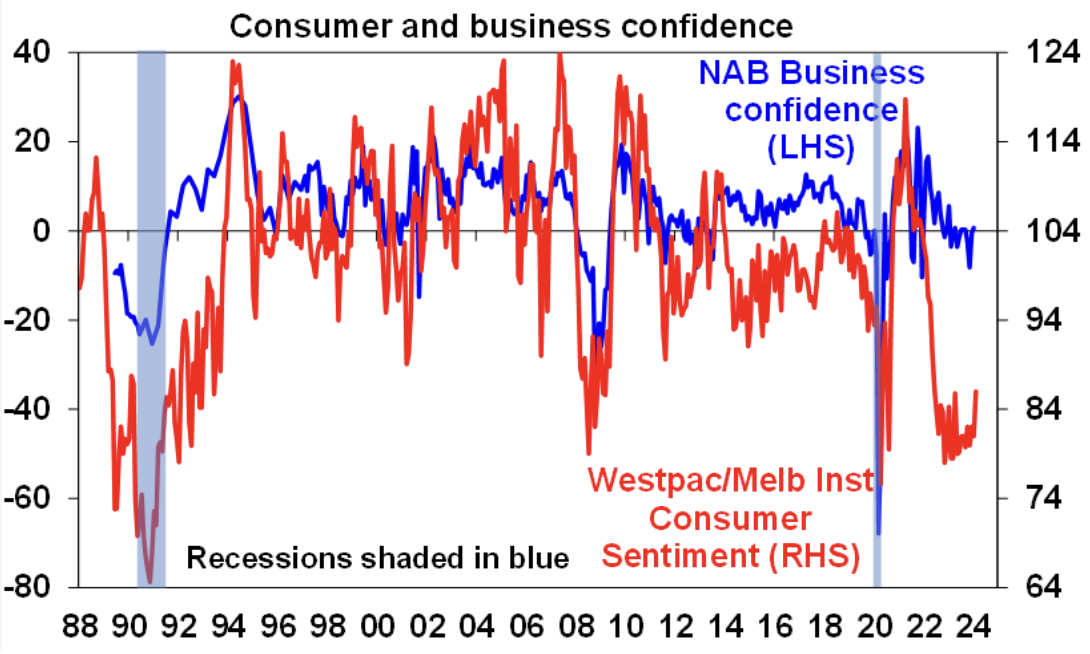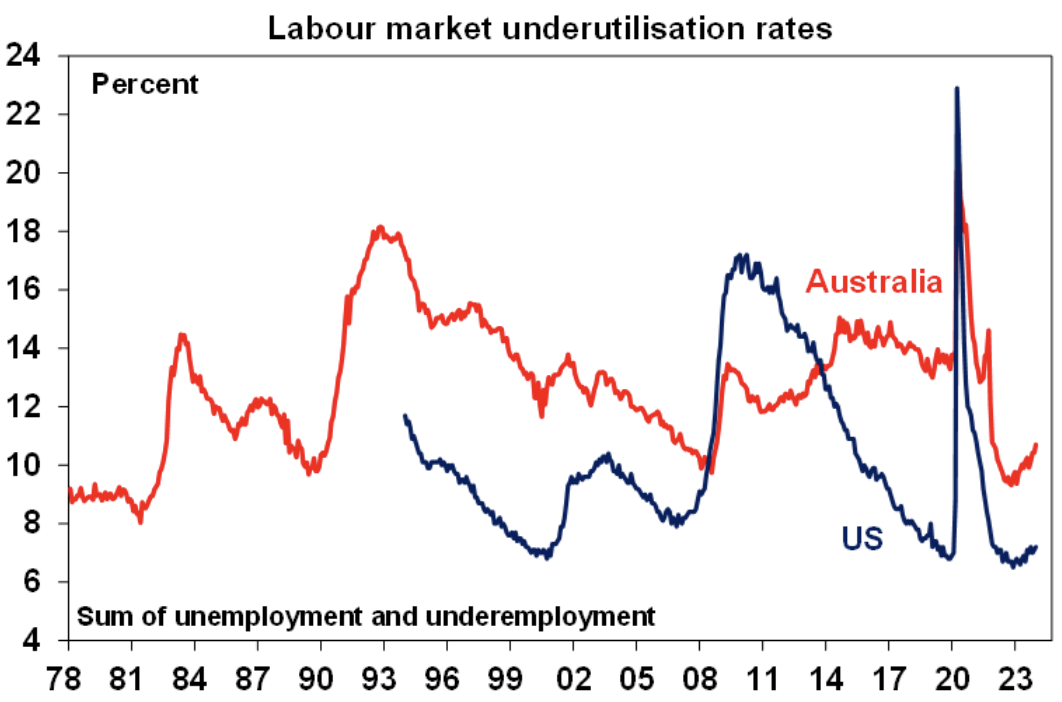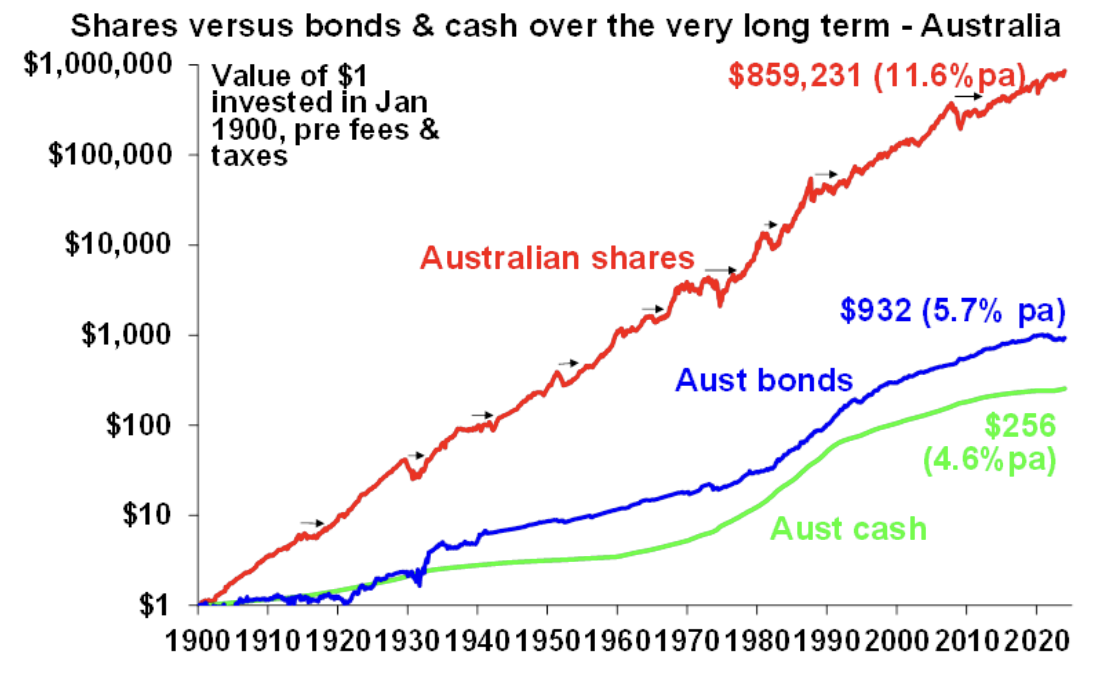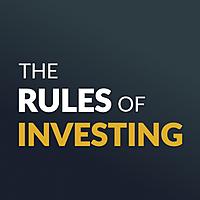The policy overhaul Shane Oliver would make to secure Australia's fortunes
"Living Legend", "One of a kind", and "Diamond in the Rough" are not terms usually bandied about when describing economists! But these are just a few of the hundreds of messages of support and appreciation that flooded a recent social media post recognising the 40-year tenure of AMP Chief Economist Dr Shane Oliver.
Shane has dedicated his years to educating Australians on all matters of the economy. His style tends to be glass half full, and you'll rarely hear him pushing doomsday forecasts. He also possesses an uncanny ability to make complex matters easy to understand and is usually armed with some cracking charts to drive home his points.
In this episode of The Rules of Investing, hosted by James Marlay, Shane provides his thoughts on the Australian economy today and how we can make it better for tomorrow.
James also poses a hypothetical question asking Shane to nominate the one policy change he would make to secure Australia's economic fortunes. He barely skips a beat and nominates an overhaul of Australia's taxation system, labelling it as 'not fit for purpose'.
"The current tax system is way beyond its use-by date and no longer fit for purpose."
Oliver says the current tax system dramatically distorts people's decisions to work or companies' decisions to invest. He says he would adopt recommendations from the IMF and the OECD by raising the GST to 15% and levy it on all items, including health and education.
"I would then push out the tax-free threshold, lower all the tax scales and push out all the thresholds. And hopefully, GST revenue would also pay or enable another change, which would help the states eliminate stamp duty on residential property."
Given the regressive nature of GST, Oliver says he would increase the tax-free threshold and provide compensation for low-income earners to offset the higher consumption tax.
Oliver also has strong views about property, starting with removing stamp duty, which he labels massively distortionary.
"It is a huge hurdle to getting into the property market and a huge hurdle, stopping empty nesters from selling down their home when it should be made available to families to get into. So we really need to undertake that reform," he says.
And in good news for many investors, Oliver says franking credits should not get taxed.
"To be honest with you, I would not tax franking credits. It's Paul Keating's best reform. A fantastic thing for Australia and should never be changed."
The full interview covers a range of issues, including population growth, housing affordability and Australia's exposure to the Chinese economy. Oliver also shares his three favourite charts, which are explained below.
Listen & Follow
Timecodes
- 0:00 - Introduction
- 1:45 - 40 years in economics
- 2:48 - Why it pays to be optimistic
- 4:30 - Have central banks achieved ’Mission Impossible’ and avoided recession
- 6:44 - Shane Oliver’s base case for interest rates in Australia
- 8:46 - When will cost of living pressures begin to ease?
- 12:20 - A more inflation prone outlook
- 16:08 - Australia’s growing population
- 18:48 - Immigration and housing affordability
- 20:30 - Is China's growth a concern for Australia?
- 24:11 - Shane Oliver’s 3 favourite charts
- 31:47 - What impact will the Stage 3 tax cuts have on the population?
- 34:01 - Shane’s Oliver’s biggest investing loss and lesson
- 36:42 - Markets are look ’ok’ right now
- 40:03 - The policy overhaul Shane Oliver would make to secure Australia’s fortunes
Shane Oliver's 3 favourite charts
These are the three charts Shane Oliver brought to discuss in the podcast with an expaination of what each chart shows, why it matters and what they are saying right now.
First Chart: Consumer and Business Confidence

What is it? The NAB business confidence survey and the Westpac/Melbourne Institute consumer sentiment survey are the two benchmark reads of their kind in Australia.
Why does it matter? The chart captures "animal spirits" at both the consumer and business level - and the divergence suggests that those spirits can be awoken again once interest rates start to be cut and consumer confidence begins to increase. The anticipated spring back in spending also explains why investors are trying to look through recent corporate earnings in the retail space.
What is it saying right now? Dr Oliver notes there has been a small uptick of late in both readings but the divergence suggests that high interest rates are doing the job it intends to do.
"But it's also telling me that interest rates will have to start coming back down again otherwise that weakness in consumer conditions will flow through to business conditions at the same time," Oliver says.
Second Chart: Labour market underutilisation rates

What is it? Labour market underutilisation takes into account the (estimated) number of people who are out of work and the number of people who are employed but want to work more hours.
Why does it matter? One of the Reserve Bank's biggest mistakes before and during the pandemic was that it argued that labour markets were tight. But that assumption was wrong as although the unemployment rate itself was low, the number of people who wanted more work was high. It explains why inflation was so low then and now that the market is too tight, people will demand higher wages - risking an entrenchment in wage-driven inflation.
What is it saying right now? Dr Oliver says the current version of the chart shows some important good news.
"The good news is that, from these charts, the trend is going up slightly. The labour markets are cooling which ultimately means that wage inflation is not going to get out of control. We're not going to have a wage-price spiral and we're not going back to the 1970s," Oliver says.
Third Chart: Stocks vs bonds in Australia

What is it? The cumulative, total return performance of stocks vs bonds vs cash in the Australian market.
Why does it matter? The returns in shares continue to far outpace bonds and cash. Even in its exaggerated form, the magic of compounding interest still stands.
"That should be the dominant motivator to invest," Oliver says. "Of course, you're going to have setbacks and they will all feel very gloomy, whether it's the 1970s and the GFC. All those things happened but for someone who took advantage of those dips, they did fantastically well," Oliver adds.
The Rules of Investing will return on Saturday March 16th with Warryn Robertson of Lazard Asset Management as our guest.
2 contributors mentioned


